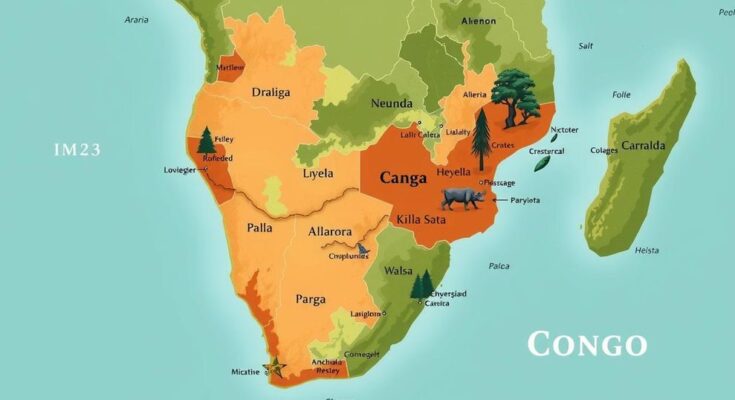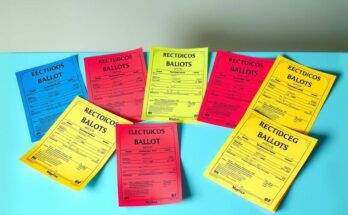The DRC government has revoked a tax directive on goods from M23 rebel-controlled areas after public backlash. The DGDA labeled the initial directive as a forgery, and public outcry raised concerns of national division. The reversal comes as Goma faces severe economic disruptions and a liquidity crisis due to continued conflict. Authorities stress a commitment to adhere to laws while managing a complex regional situation.
The Congolese government has reversed its controversial decision to tax goods from regions controlled by the M23 rebel group following a widespread public backlash. The General Directorate of Customs and Excise (DGDA) of North Kivu announced on Wednesday that it would no longer categorize goods from Goma, Bunagana, and Ishasha as new imports subject to tax.
Jean-Louis Bauna, deputy director-general of customs, dismissed the directive as a “forgery,” insisting that current customs regulations apply fully across the nation. The decision faced intense criticism on social media after being communicated to neighboring Uganda and Tanzania, with many suggesting it could effectively divide the country.
In light of the provincial capital Goma falling to the M23, the Congolese authorities have relocated their administration to Beni. Paul Kayembe, the director of the North Kivu DGDA, refuted claims of taxing goods from the M23 zone, attributing the directive to “ill-intentioned people” aiming to undermine him, and also suggested it was influenced by Rwandan manipulations.
Reports suggest that the government previously sought to reignite customs taxation to recover lost revenues from the M23-occupied border posts, leading to its swift reversal amid public outcry. The North Kivu DGDA reiterated its commitment to adhere to national laws and support government initiatives to reclaim occupied territories, while prominent officials condemned the imposition of customs duties as creating a de facto internal border.
Further investigations revealed that customs operations in M23-occupied regions had been removed from the automated customs management system. The situation in Goma remains grave, as the local banking system has collapsed, forcing residents to seek banking services in Rwanda due to the closure of banks and the central bank’s provincial branch, resulting in a liquidity crisis.
In conclusion, the Congolese government’s decision to rescind the taxation of goods from M23-controlled areas followed significant public dissent and fears of regional division. The authorities, while emphasizing compliance with national laws, acknowledged the economic turmoil in regions affected by the conflict, particularly in Goma. This incident underscores the complexities of governance in conflict zones and the impact of political decisions on local economies and societal stability.
Original Source: www.zawya.com




